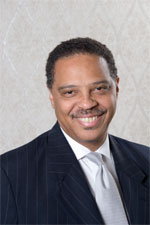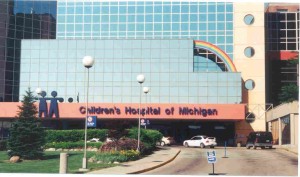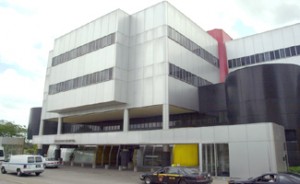Cuts in “unprofitable” services like pre and post-natal care likely
- Vanguard will provide “core services” for a minimum of ten years “at one or more hospitals,” according to a list of “Frequently Asked Questions” authored by the AG’s office. These include “a neonatal intensive care unit, obstetrics, emergency services, a trauma-designated emergency department, intensive care, general medical services, inpatient rehab services, inpatient and outpatient surgery, radiology and diagnostic services, cardiology services, and outpatient rehab.”
In a recent interview, Kosman, who has reviewed documents on the AG’s website, said, “What jumped out at me was that Vanguard is not committing to keep certain facilities or divisions open. Their focus will be on remaining profitable by focusing on services such as heart surgery, not on pregnant moms. They are not committing to nursing levels. Why isn’t the DMC waiting until President Obama’s health care reform is in effect? Wall Street makes money where Wall Street makes money. It sounds to me like the DMC is where some of it may be.”
Attorney Ron Glotta angrily asked during the forum, “How do you maximize profits? You do it by reducing wages, attacking unions, increasing charges, and limiting services. You take your profits out of the city of Detroit and put them in hedge funds. Money is coming in with President Obama’s new health care plan. That’s Vanguard’s motive. It’s not complicated.”
Under Obama’s plan, for-profits will actually be at an advantage. Only non-profits will have to account in detail for the quality of care they render under recently-enacted stricter regulatory requirements for that sector.
Attorney Benjamin earlier said, “We’re concerned that the deal doesn’t have enough guarantees for Detroiters . . . .Vanguard can close any of the DMC hospitals if the DMC board majority agrees. In the meantime, they can cut back on any unprofitable services, such as Hutzel Hospital’s premature infant unit, the largest in the state. That would cause infant mortality in Detroit, already the highest in the country, to increase even further.”
During the forum, Benjamin raised the thorny question of Detroit Receiving Hospital (DRH), previously called Detroit General Hospital (DGH), the city’s only publicly-owned hospital. In 1980, after a three-year community battle to save DGH, it was privatized.
“When the DMC was formed it assumed control of a city-owned hospital,” Benjamin said. [State law] permitted the sale only because the DMC continued the charitable purpose of Receiving Hospital . . . .to provide ‘the highest quality of health services to all persons needing them, regardless of the person’s religious, racial, or ethnic identification, or economic status.’ It is unlikely that Vanguard will be able to fulfill this obligation to Detroit’s residents . . . . The mission of the DMC must be protected in perpetuity, not just for ten years.”
The structure DMC and Vanguard set up in the deal provides for a statewide Vanguard/DMC board of directors, with the current DMC board of directors responsible only for overseeing $180 million in “charitable contributions” to the system. Vanguard’s national board, which will have only one representative from the current DMC board, will make all economic and health policy decisions for Vanguard/DMC.
Will Detroiters be compensated for public investments in the DMC?
“Detroiters will not receive any compensation for this transfer,” Sister Howard contended Aug. 18. “When a for-profit takes over a non-profit, its value is supposed to be transferred to other charitable entities to carry out its mission.”
DMC CEO Mike Duggan and Vanguard claim the “purchase price” in the so-called “sale” is $417 million. But that money is meant to assume $417 million of DMC’s tax-exempt debt. Although Vanguard is a for-profit entity, the city of Detroit, Wayne County and the State of Michigan have granted it 15-year tax exemptions. Debt is a tool used to make profits on Wall Street, where companies sell and buy it like a commodity.
DMC’s consolidated financial statements published on the AG’s website show that DMC is actually $490 million, not $417 million, in debt.
The rest of the transaction includes Vanguard’s assumption of $190 million in net pension liability, and “warrants for unissued VHS stock to secure performance of VHS promises to invest $850,000,000 in future capital investment in the DMC system.”
Most hospitals now part of the DMC were originally incorporated as far back as 1865, in the case of the Woman’s and Foundlings Hospital, which became Hutzel, to provide care for all the people of Detroit, including the poor and uninsured. Detroit Receiving Hospital was founded with a similar mission in 1915, as was Sinai (originally the Jewish Hospital Association) in 1941. The DMC itself was not incorporated until 1985.
“According to common law, the creation of a nonprofit organization with charitable or other social welfare purposes results in a charitable trust that is irrevocably dedicated to the organization’s original mission,” said Dr. Patricia Butler at the beginning of the non-profit buy-out craze in 1995. Dr. Butler is a health policy analyst with a University of Michigan law degree and a University of California, Berkley doctorate in health policy.
In other words, non-profit hospitals are charitable trusts in and of themselves. So how does one evaluate their actual worth?
How much has the community invested in DMC hospitals?
Vanguard has said it will assume the DMC’s outstanding debt. But nowhere does the deal say that the community’s hefty investment in DMC will be preserved in a “charitable trust.”
DMC’s 2009 consolidated financial statements, published on the AG’s website, indicate that in 2009, DMC as a whole ran a surplus of over $46.8 million.
But separate forms 990 from individual DMC hospitals and the DMC itself, for 2008, show that positive fund balances for four of the DMC’s hospitals totaled over $1 billion. (See chart at bottom of article).
Children’s Hospital’s balance was $572,509,208, while Detroit Receiving Hospital-University Health Center (DRH-UHC) was next highest, at $357,156,214. These two hospitals provide the highest amount of indigent “uncompensated” care in the DMC system.
Negative fund balances for four other entities came in at nearly $950 million. The DMC, which is primarily an administrative and billing agency not founded until 1986, reported a negative fund balance of over $258.4 million, with Harper-Hutzel running in the red at $380.4 million and Sinai-Grace at nearly $300 million.
Despite the DMC corporation’s questionable functions, DMC CEO Duggan raked in a salary of nearly $1.4 million in 2008. Salaries for top-level executives at all the hospitals totaled nearly $50 million.
The city’s taxpayers also invested a large amount in the construction of DRH-UCH, approving a $70 million bond issue. While the bonds were supposed to be paid off from DMC revenues, payments fell short, and the DMC tapped into property taxes to stay current.
“The City’s role in purchasing and paying for Detroit Receiving should not be overlooked,” said Detroit City Councilwoman JoAnn Watson in 2009, during discussion of a 15-year tax abatement for Vanguard/DMC. “There was a fund of $200 million that went along with the transfer of Detroit Receiving from Detroit General. That money has never been accounted for.”
Watson was the only City Council or Wayne County Charter Commission member to vote “No” on the tax abatement, another community contribution whose worth has not yet been calculated.
In an earlier interview, Attorney Benjamin additionally noted, “The entire Detroit Medical Center was built with federal funds under the Hill-Burton Act, in an agreement which guaranteed care for the poor for twenty years.”
In addition to the funds cited so far, the DMC hospitals have benefited from many hundreds of millions in public financing including DSH, Medicaid and Medicare. Actual figures on the total amount of these funds provided to DMC hospitals over the decades were unsuccessfully requested from the U.S. Department of Health and Human Services.
| DMC Facilities | Primary Services | Surplus/ (Deficit); Fund balance | Top level exec. $$$ | CEO $$$ | Date Est. | |
| DMC | Admin, medical education, MIS, planning, lab | (6,684,099)Fund balance(258,418,954) | 17,910,501 | MikeDuggan1,368,107 | 1985 | |
| DRH-UHC | Internal med,ER, surgery, ortho, psych | 9,043,550Fund balance357,156,214 | 6, 783,782 | Iris Taylor515,274 | 1915 | |
| Harper-Hutzel | Internal med,Cardiology,Ob-gyn, Surgery | (11,106,369)Fund balance(380,453,718) | 8,031,502 | Thos.Malone808,743 | 1865 | |
| Sinai-Grace | Internal med,emergency,ob-gyn, surgery | (4,222,821)Fund balance(299,578,273) | 4,376,341 | ConradMallett613,348 | 1941 | |
| Huron Valley Sinai | Internal med, many specialties; ob-gyn, ortho, ER | 10,994,546Fund balance20,902,800 | 3,018,263 | LynnTorossian377,060 | 1986 | |
| Children’s HM | Pediatric care,cancer, heart,neurology | 39,995,157Fund balance572,509,208 | 6,608,722 | HermanGray, MD536,136 | 1922 | |
| Rehab Inst. | Inpatient and outpatient rehab | 8,494,345Fund balance51,294,694 | 484,247 | Frank Torre222.854 | 1951 | |
| DMC Foundation | Outpatient DMC clinics | (2,426,760)Fund balance(10,723,820) | 2,322,856Most fromrelated org | ThomasMaloneH-H pays49,536,214 | 1991; mostclinics shut in 2002 | |
| Totals | Fund balance+1,001,962,916-949,174,165 |
|












